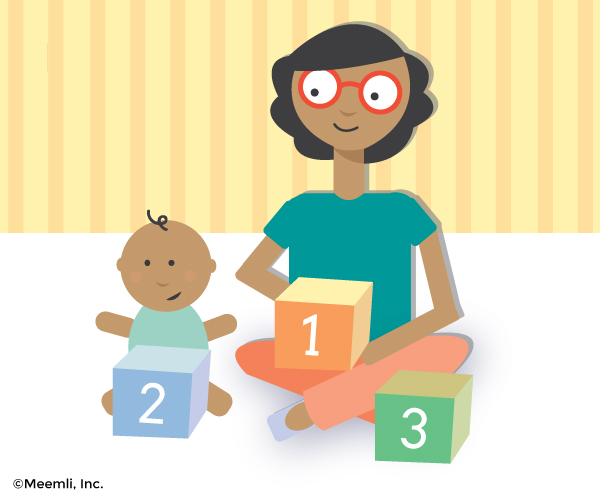Month: May 2015
Test Time Strategies For Parents

The end of the school year is almost here. And in most schools, it is the time for tests! The few short weeks are packed with valiant attempts by teachers to complete the lesson plans and assignments while fitting in all the ‘required’ tests, like the dreaded finals. All the while, summer break is waiting just around the corner, and planning for summer makes it so hard to concentrate. Teachers are stressed. Students are stressed. And yes, parents are stressed too – because their kids are stressed. (In some parts of the world, the stress can be intense – check out this mind-boggling story of test prep in China!)
But, it doesn’t have to be a killer time of the year, every year. Here are some simple test time strategies for parents of teens – easy ways to dial down the stress at home and help your child survive the end-of-school-year crunch.
1. Be there for your child
You’re sitting there staring at a piece of paper with no idea how to answer any question on your test. You’re sweating. You jump up and are awake. It was just a dream. Whew!
It is your child’s turn to live that anxiety now. He’s the one who has to take the tests and deal with the demands of school. But you know how scary it can be, and how much it helps to have someone to talk to about it.
That’s your role. Be the parent who’s willing to listen to the child who is terrified of tests. Or complains that tests are useless and don’t show if a person is smart or not. She’s probably right. For a lot of people, college, professions and the road a child will take in life may appear to be determined by every exam. Be the parent here and help your child to put it in perspective.
Do your best, to be aware of how your child is doing and feeling. Ask them questions, gauge their stress-levels, and ask how you can help when appropriate. Just let them know that you are on their team, no matter what.
- Remind Them to Stay Healthy
You know this already. (The old “sound mind in a sound body” saying is familiar to all of us, and is increasingly being proven true by science.) And you try to get your children to keep healthy habits – get enough nutrients, exercise and sleep – all the time. But this is a particularly stressful time of year and kids may be tempted to reach for the junk food and Red Bulls, and stay up late cramming, and too much of that could backfire. They need enough sleep to perform well (here’s the research to support it), and nutrition and exercise to keep their immune systems healthy and help them not fall prey to every passing virus. Remind them – gently – to eat right, workout a little and get some sleep.
And if they’re open to it, suggest some quick meditation and breathing exercises that will greatly reduce their stress levels and also help them focus.

- Be Their Test Coach
Help your child with practice exams by quizzing, timing, and checking their answers for them, and where needed, decoding test instructions and strategies (for example, when guessing the answer hurt or help.) This is a great way for students to reduce their test anxiety (freezing up during a test can sometimes be the cause of a poor grade). Tests become less frightening when students have already approached them in an informal way. Plus they’ll remember more of what they have learned.
- Help them with time management
Of course, the best way to help your child when preparing for tests is to promote studying as a daily habit (make sure you do that for the next school year!). But for now, you can still help your child manage her time better. Help her mark the dates and times of all the tests, assignments and any other ‘must-do’ item on her calendar, and then work backwards to figure out when she should start working for them. Help her prioritize what is important and identify what is harder for her and therefore likely to take more time. Having a schedule to work with often helps reduce the stress too.
You can also help by avoiding piling on family commitments (distractions) during this time – if your child would rather stay home and prepare for Monday’s test, don’t force him to attend your cousin’s barbeque on Sunday!
- Get Expert Help
If your child is struggling academically and you’re running out of ways to help, seek out assistance. Ask your child if he has any friends he’d like to study with – study groups are very effective. Encourage your child to check with his teacher who might have some excellent suggestions. There might be tutoring available at your child’s school or it might be worth investing in a private tutor. If your child needs targeted help in specific topics, there might be online courses she could take (Meemli Academy has some great options with live teacher guidance). Your child would feel relieved to know that there are many helpful people and resources out there that can eliminate much of the anxiety out of taking tests.
Until the educational system goes through a massive change, testing will be a big part of your child’s life, all the way through college. The best thing you as a parent can do is help your child learn strategies to deal with tests and get through them with a reasonable level of calm. It should get easier with practice every year!
Do you and your child worry about tests? How do you deal with test-anxiety? We’d love to hear from you!
20 May, 2015
Mom Is Also The #1 Teacher!

Mother’s Day is coming up and the Meemli team would like to take this opportunity to salute moms for being such amazing teachers! They’re there from the beginning of life and stay constant all through it. Think that ‘teaching’ only happens in the classroom with ‘real’ teachers? Think again. Here’s a brief list to help you recognize the teacher inside every mother. (To be fair, many fathers do much of these too – their turn will come next month!)
Early childhood
Mother’s lap is a child’s first classroom. The first five years of life impacts how well babies learn and grow throughout their lifetimes. This is probably when you as a Mom do your most intensive teaching to a child who’s doing a fantastic job imitating a sponge and soaking up every bit of knowledge.
The survival stuff.
Learning to eat, drink, climb stairs, crossing streets safely, identifying a dangerous pet from a friendly one. The basics for living.
Life’s essentials.
Survival is not sufficient. With every hug and cuddle you teach your child about love, trust, friendship and all those intangibles that make life worth living.
Building blocks.
Even if you may not call them ‘academics’ (though many do, even for toddlers), you give your child the building blocks for learning: language, math, science, arts. It may be mommy-and-me play for you, but you are teaching and your little one is learning a lot (maybe that why kiddos need those naps!).
Middle Childhood
Your kid is off to a ‘real’ school, with ‘real’ teachers (yes, they do play a big part in your child’s life) for most of the day and you’re no longer the primary source of their learning. But you’re still teaching, though some of what you teach is now influenced by external factors and there are new areas to explore.
School learning.
At this stage, you’re primarily focused on helping your child learn to handle the requirements of school, the ‘schoolwork’ and ‘homework’, not to mention the tests, the projects, and the to-do lists that the teacher sends home. Learning how to cope with school is important and a trusted, loving source like mom makes a huge difference.
Skill building.
Even though your child is being ‘taught’ at school, you may find yourself helping (‘teaching’) him how to do math or interpret the guidelines for a book report while teaching study skills and habits (turn off the TV while doing homework!). This is the time when you also encourage your child to try other activities like sports and music, so she can learn new skills and get a taste of the many wonderful things she may enjoy learning and doing.
Character development.
For sure this is happening during the early years too and will continue through adolescence, but now you and your child can name the traits (honesty, kindness), identify their presence or absence in role models and discuss why they’re important. You’ll be finding teaching moments everywhere from shopping trips to soccer fields!
Adolescence
The pre-teen and teen years are a significant transition, and you may be shifting to a more supportive role in your teaching. Most of all, what you’re doing now is helping your child prepare for adulthood and all that it entails. You’re getting your child ready to take on the world!
Academics.
Maybe you can’t help your child with math anymore, but you try to find someone else who can or encourage him to go talk to his teachers. Maybe you can’t critique an essay, but you help your child brainstorm what she should write about for a personal statement. And you teach your child how to plan and juggle various commitments and deadlines – after all, you do plenty of that yourself!
People Interactions.
It’s about dealing with their peers (Friends! Boyfriends! Girlfriends!), as well as about speaking up at school, asking for summer jobs or help from people they know. And you’re there to teach them how to recognize, accept and handle their feelings and manage their interactions (and give a hug and box of tissues when needed).
Awareness
Your kids are learning about the world and their role in it. They may become aware of the major problems (environment, inequality etc.) and you may be part of many long (and heated) discussions on the future of their world. You may be learning something yourself while offering guidance in understanding these complex issues.
Practical Stuff.
There’s a long list of ‘simple’ things that you get your child to do like managing money, doing laundry, cooking meals. All the things they need to know to be able to head out into the world on their own.
Let’s face it, once your kids have discovered the Internet, it is easy to believe that they can learn ‘how’ to do just about anything from a YouTube video. But usually not the ‘why?’. And Moms have been answering that question from the time when humans first learned to call out for ‘Mom!’.
What do you think? Is ‘teaching’ a big part of being a mom for you?





